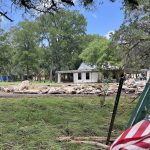Indigenous leaders demand greater voice in brazil’s upcoming cop30 climate summit

As Brazil prepares to host the world’s most important climate conference, COP30, indigenous communities are calling for meaningful participation in discussions that will directly impact their ancestral lands and way of life. The upcoming summit, scheduled to take place in the Amazon region, presents a unique opportunity for indigenous voices to be heard on the global stage.
BBC correspondent Ione Wells recently spoke with two prominent indigenous leaders about their expectations and demands for the climate talks. These conversations highlight a growing movement among Brazil’s indigenous communities to secure not just a seat at the table, but genuine influence in climate policy decisions that affect the Amazon rainforest and other critical ecosystems they have protected for generations.
Indigenous groups argue that their traditional knowledge and proven track record of environmental stewardship make them essential partners in addressing the climate crisis. Many indigenous territories in Brazil contain some of the best-preserved forests in the Amazon, demonstrating their effectiveness as environmental guardians. However, these communities often face exclusion from major climate policy discussions despite their expertise and direct stake in the outcomes.
The push for indigenous representation at COP30 comes at a critical time when deforestation, mining pressures, and climate change threaten traditional ways of life. By hosting the conference on their home turf, Brazilian indigenous leaders see an unprecedented opportunity to shift the global climate conversation toward solutions that recognize indigenous rights and incorporate traditional ecological knowledge into international climate action plans.
This article was written by the EnviroLink Editors as a summary of an article from: BBC







